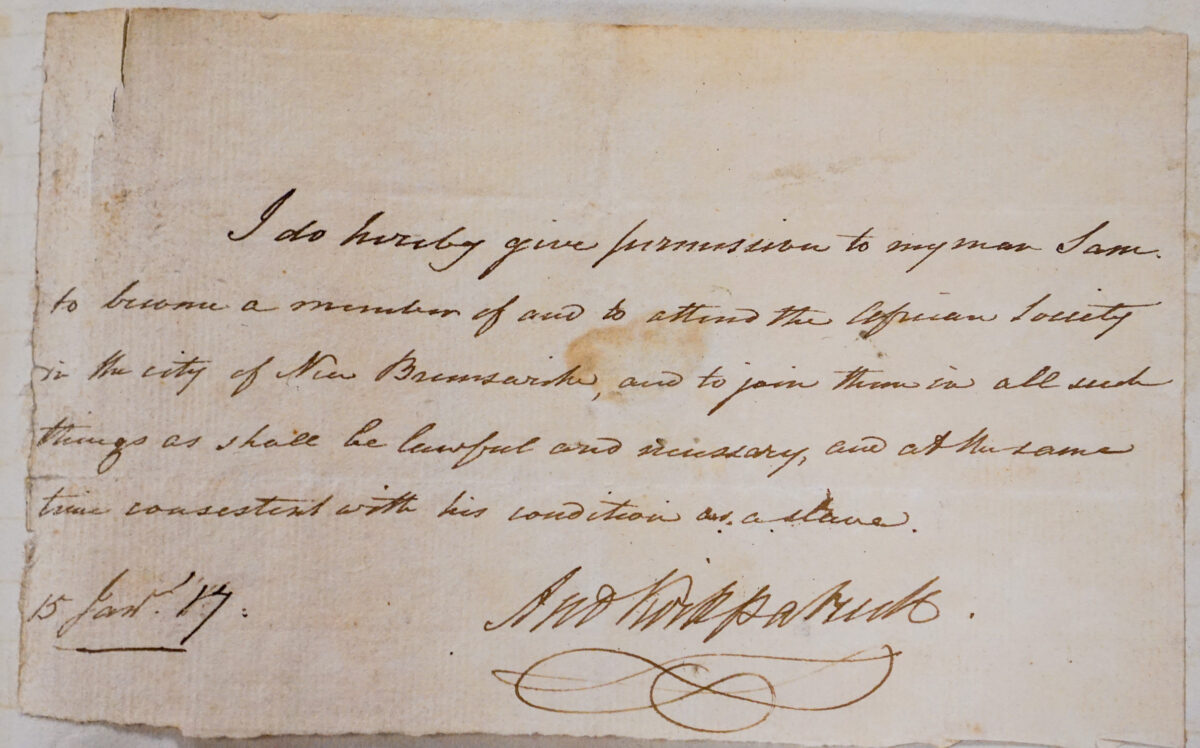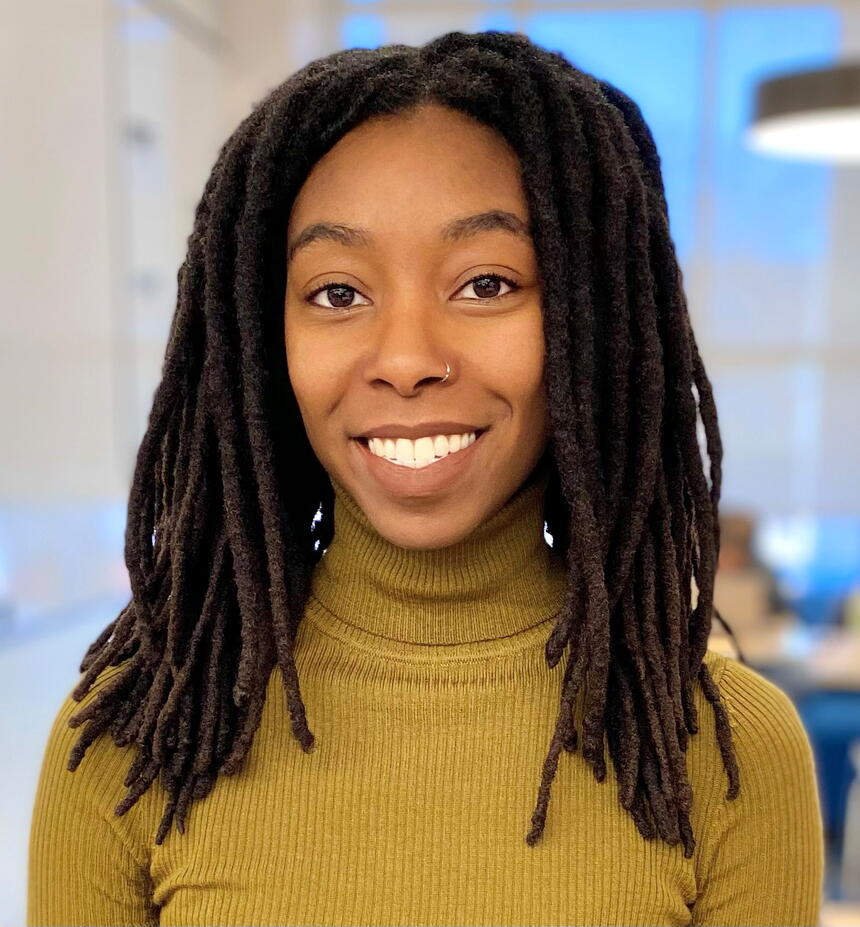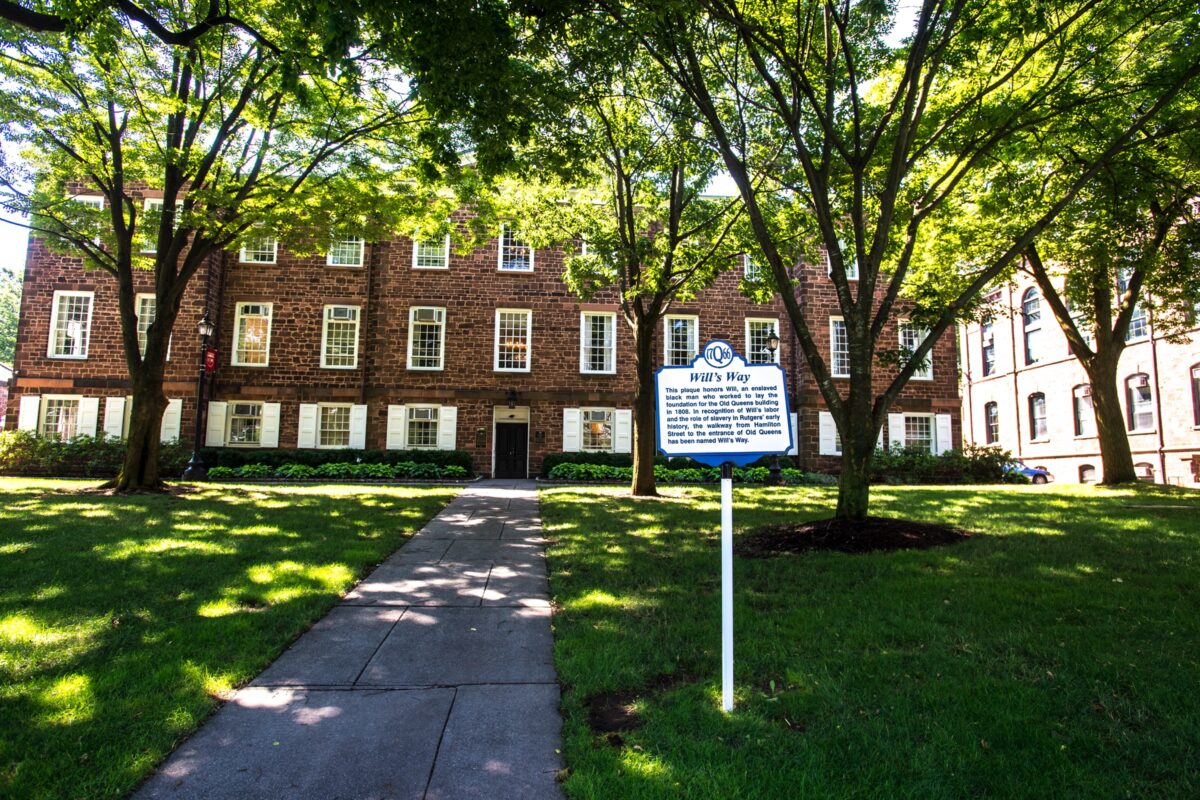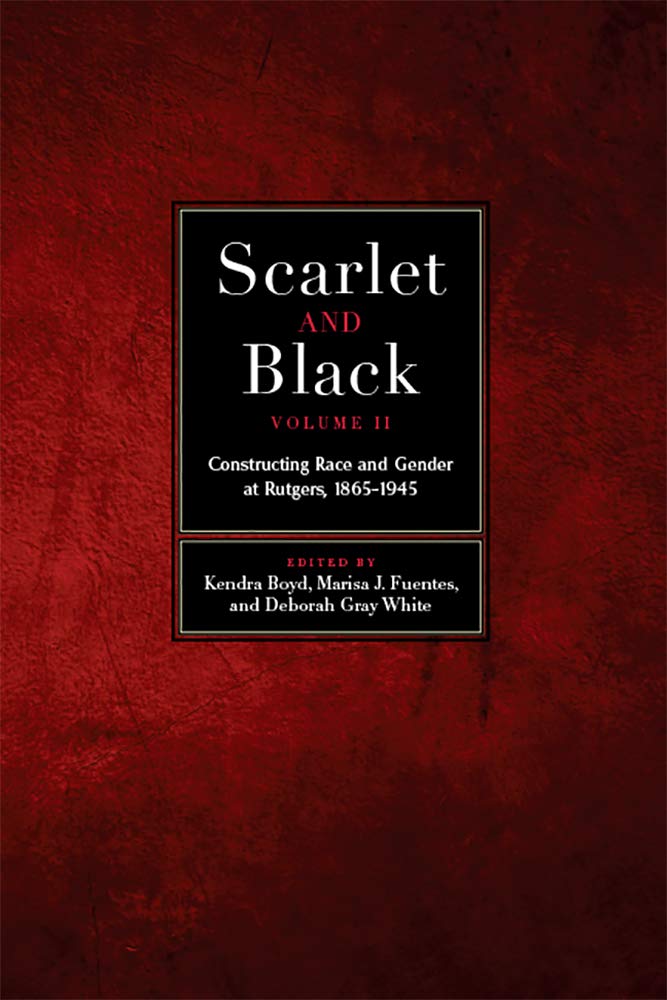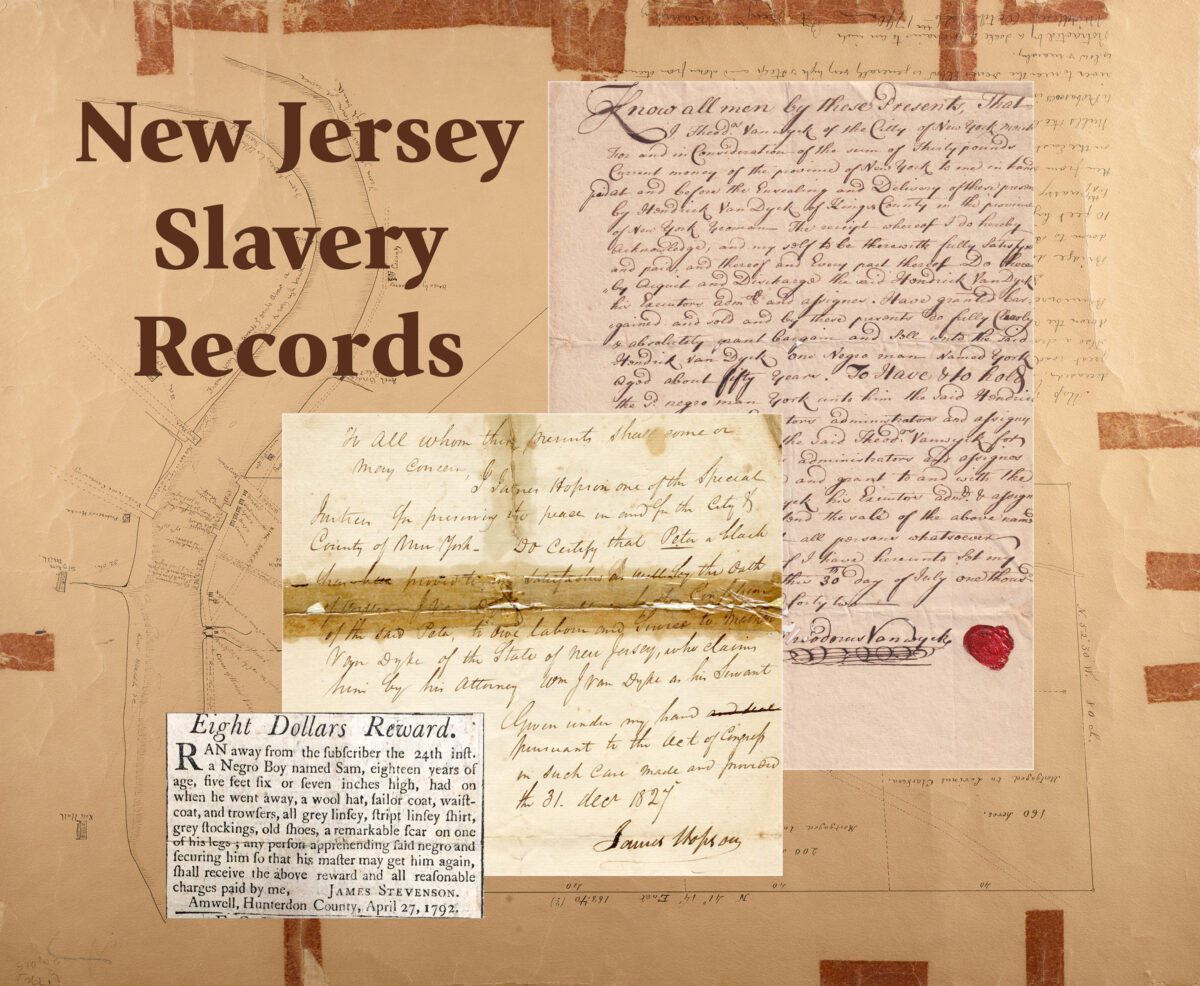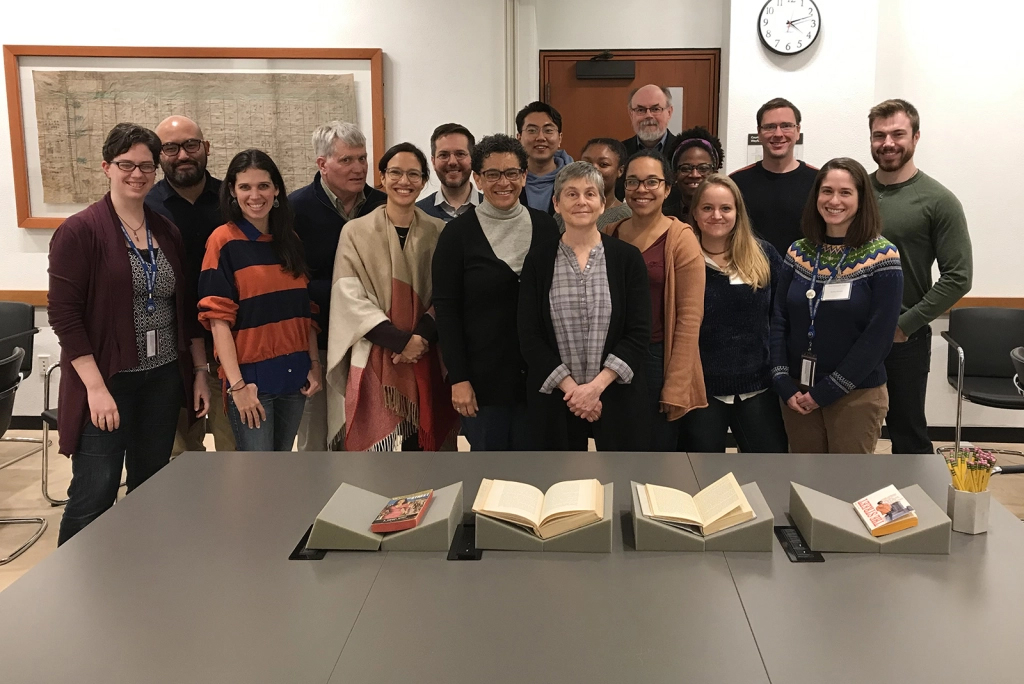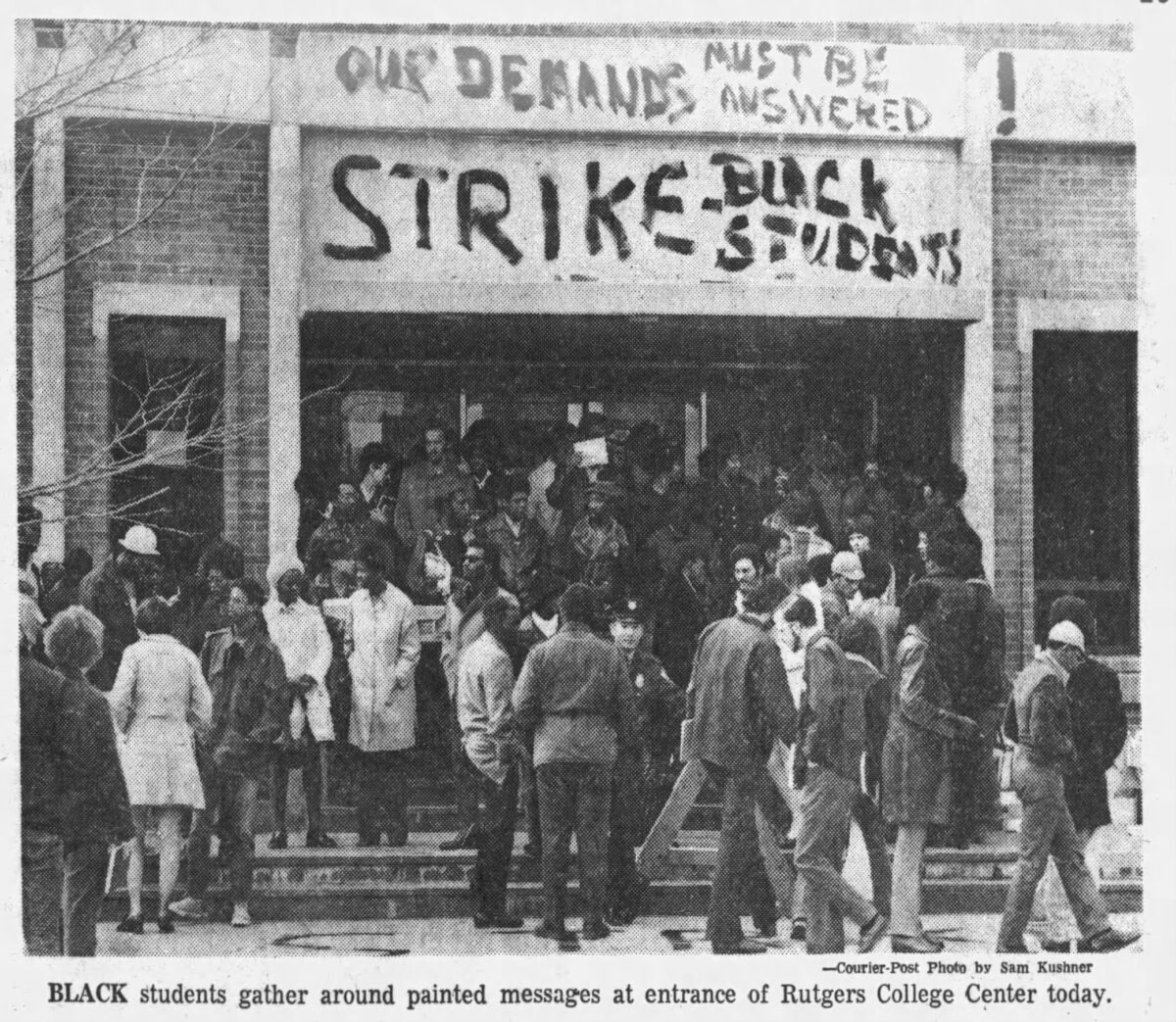The Scarlet and Black Research Center is looking for undergraduate students to join our research team. We invite applications for undergraduate research assistants for the 2023-2024 academic year. Students will earn 3 credits through the Aresty RA Program while gaining research experience with a focus on African American history. Applications are due by April 15, 2023. Learn more about the program and application process below.
Interested students are encouraged to contact Dr. Jesse Bayker with any questions.
Project Description and RA Responsibilities
Project Description and RA Responsibilities
Project: Scarlet and Black Digital Archive: Documenting African American History in New Jersey (https://webapps.rutgers.edu/urs/projects/projectdetails.aspx?id=11599)
The Scarlet and Black Research Center seeks research assistants with a strong interest in African American history. Working closely with the digital archivist at the center, the research assistants will support the development of the Scarlet and Black Digital Archive and related initiatives.
Current digital history initiatives include:
- New Jersey Slavery Records, an open access database that documents the history of slavery in New Jersey communities through digital archival sources.
- Black Voices at Rutgers, a portal that helps students and researchers discover African American oral history interviews with a focus on Rutgers and life in New Jersey.
- Black Camden Oral History Project, a new effort to preserve the history of African American life and student activism in Camden, New Jersey, through oral history interviews and digital preservation of historical documents and ephemera.
- Scarlet and Black Digital Archive, a publicly accessible educational resource that features primary sources documenting African American history in New Jersey.
- Scarlet and Black virtual walking tour highlighting African American history sites at Rutgers University in New Brunswick, Newark, and Camden.
The research assistants will be assigned to one of these projects based on their individual interests and the current needs of the center’s collaborative research team.
Prior experience with digital history or oral history is not required. Commitment to scholarship that supports the movement for racial justice is essential.
Applicant Responsibilities:
Responsibilities vary by assignment and may include:
- Research in historical newspaper databases.
- Manuscript research at Rutgers Special Collections and University Archives at Alexander Library.
- Reading and transcribing digital scans of hand-written documents from the early 19th century.
- Reviewing and organizing oral history interviews to create subject and location indexes.
- Compiling biographical profiles for oral history participants.
- Using historical visual sources to create a digital exhibit.
How to Apply
To apply for the Aresty RA position at the Scarlet and Black Research Center, access this job posting on the Aresty Research Center website: https://webapps.rutgers.edu/urs/projects/projectdetails.aspx?id=11599
You can find this opportunity in the Aresty system by searching for the the project title: “Scarlet and Black Digital Archive: Documenting African American History in New Jersey.”
You will need to submit the following materials:
- A single-spaced, 1-2 page essay describing your interest in the project and your qualifications. The essay should also include your post-undergraduate and career plans if you know them.
- A resume, which should include information about employment history, internships, relevant courses, research skills, and any organizations and/or activities you have partaken in at Rutgers.
- Your most recent transcript (automatically uploaded; you do not need to order this).
About the Aresty RA Program
The Aresty Research Assistant (RA) Program enables students to gain their first authentic research experiences by supporting faculty research projects during the academic year. RAs learn valuable research skills by working side by side with professors on forefront research projects, while professors benefit from a structured program to recruit and train the next generation of researchers. Students selected for the program do five hours of research per week (or more by arrangement with their professor). Selected students also attend peer group meetings with other undergraduate researchers to practice scholarly communication, explore research ethics, design posters, and discuss research methodology.
Aresty Research Assistants are expected to:
- Work on the project for at least five hours per week.
- Attend five peer discussion group (biweekly) meetings per semester to discuss their progress and learn essential research skills.
- Learn to effectively communicate the importance of their research in the fall semester.
- Create and present a poster based on their research in the spring semester.
- Participate in the university-wide Undergraduate Research Symposium.
- Receive 3-credits (P/NC) for the year.
- Passing grades are determined by contributions to research and by active participation in the Aresty Center peer discussion groups.
Visit the Aresty Research Center website to learn more about the Aresty RA Program, eligibility requirements, and application process.


